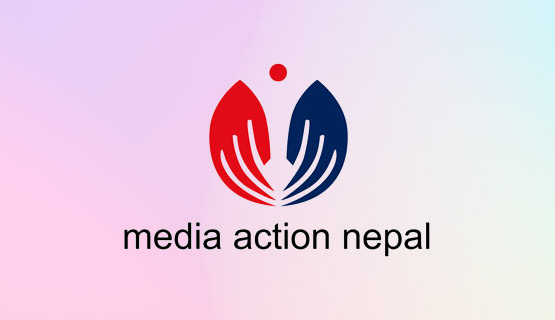
Experts call for countering the infodemic to promote credible journalism
KATHMANDU: The spread of COVID-19 pandemic has brought along the crisis of infodemic affecting the vulnerable communities with unmanageable flow of information and data. Speakers of the webinar “countering the infodemic” organized by Media Action Nepal on September 3, 2020, shared their insights on ways confronting misinformation and vaccinating the vulnerable communities with right information. The session commenced with Mr. Laxman Datt Pant, Chairperson of Media Action Nepal enlightening the audience with the integration and compatibility of ethical conduct in reporting the current pandemic. “Despite having different political systems, almost all nations have some basic journalistic codes of conduct.” he said.
Pant stated that unverified news is a threat to people at all times, general or at times of crisis, “Following these basic codes of conduct will ensure quality news and combat misinformation.” he added. He expressed resentment towards the way some journalists in Nepal have created fake news and click-baits during sensitive times, for instance misleading news on invention of Corona Vaccine, and said that the most vulnerable groups are affected by such fake information hardest. “Despite legal punishments and accountability for journalists in Nepal, the rise and rate of false news dissemination is alarming.” he said.
To add to this discussion, one of the guest speakers Dr. Gifty Appiah – Adjei, Media Researcher and Educator from University of Ghana, spoke about the ways of countering infodemic. She shared the concerns of UNESCO that “the volume and velocity of fake news within the infodemic points to the existence of a toxic dis-infodemic, disinformation and misinformation.” she enlightened the audience with three ways of detecting infodemic — human intelligence, artificial intelligence and the hybridity of human and artificial intelligence. “Detection and prevention of fake news can humanly be done by using common sense and analyzing the information at hand.” she said. “News might not always be fake and rather might be opinionated or editorial and we need to use our knowledge and sense to distinguish between facts and opinions.” she added. She shared a technique called ‘Sniff testing’ and reminded the audience of the importance of verifying sources and their credibility and verifying events through multiple sources. For using artificial intelligence she provided the audience with a number of applications and sites that help in checking and verifying the authenticity and legitimacy of any information.
Further in the discussion the second guest speaker Dr. Elira Turdubaeva, research fellow at the University of Central Asia, Kyrgyzstan spoke on the role of Social media in the spread of covid-19 related misinformation in central Asia. “The threat of misinformation is higher in the digital age and social media platforms are the major vehicles used to spread it.” she said. She shared the major themes of the first wave of fake news in the global media landscape, wherein the coronavirus was not being taken as true and there were claims of this virus being a biological weapon. Second wave of fake news included conspiracy theories like 5G internet spreads covid-19.
“Lack of trust in traditional media is driving people to believe in social media posts and often people share it without even reading.” she said. “Sharing information on social media platforms has become easy and unregulated. People have easy access to visual aids and through that they easily gain readers attention.” she added.
Being an interactive session, the Speakers were posed with questions by the audience. The first question, directed at Dr. Gifty, was how does infodemic contribute to misinformation and disinformation? She answered “in an infodemic, there is an overflow of information wherein some are true and some are not. The ones that are not true are the ones that contribute to spreading misinformation.” The second question was to Mr. Laxman asking about the negative effects of misinformation to which he replied “Misinformation affects all the stakeholders. As a journalist spreading misinformation kills your credibility. As consumers of that false information a misguided citizenry is formed and there is societal chaos.” The third question from the audience was “how do you evaluate the role played by the social media platforms in combating misinformation?” Answering this question Dr. Turdubaeva said “platforms such as Facebook, twitter, YouTube, etc claim to be monitoring news and information related to COVID-19 that is shared and deleting those which are fake but this is not enough. These are huge platforms with massive numbers of people and are user controlled.”
Attended by journalists, media researchers and journalism students from Nepal, India, Ghana, Kyrgyzstan, Poland, UAE, Bangladesh and Vietnam, the webinar was moderated by Mr. Kamal Dev Bhattarai, Political Editor of the Annapurna Express.